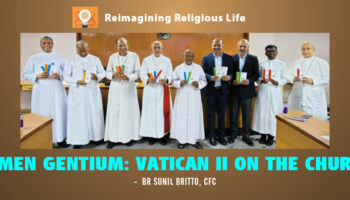How should a provincial and the provincial councillors work together, according to Canon Law?
The practice in the Catholic Church has always been this: that no authority should make arbitrary decisions. The superior needs always to listen a ‘college,’ which may be named differently. Accordingly, Canon 627of CIC and Canon 422 of CCEO describes the requirement of superiors of religious Institutes to have a council. This law is made to protect the collegial nature of any religious institute (can. 115 §2 of CIC & can. 923).
Superiors are to have their own council, whose assistance they must use in carrying out their function (can. 627 of CIC; can. 422 of CCEO). CIC says that superiors need to have a council; it does not specify whether local superiors also need to have a council. However, CCEO vividly explains that the constitution should clarify whether in houses of less than six members a council shall be established or not (can. 422).
Both the Codes very clearly impose the existence of council to condition and collegially amplify the personal power of the superior and to be a guarantee of objectivity, impartiality, collaboration, and prudence in religious governance, especially in matters of special importance which affect the members or the institute. Therefore, the utilization of council members’ wisdom and knowledge is obligatory for the major superior. The obligatory nature of its function (Superior & Council) binds the major superior and affects the exercise of power.
Sr Navya Thattil OSF
To read the entire article, click Subscribe





